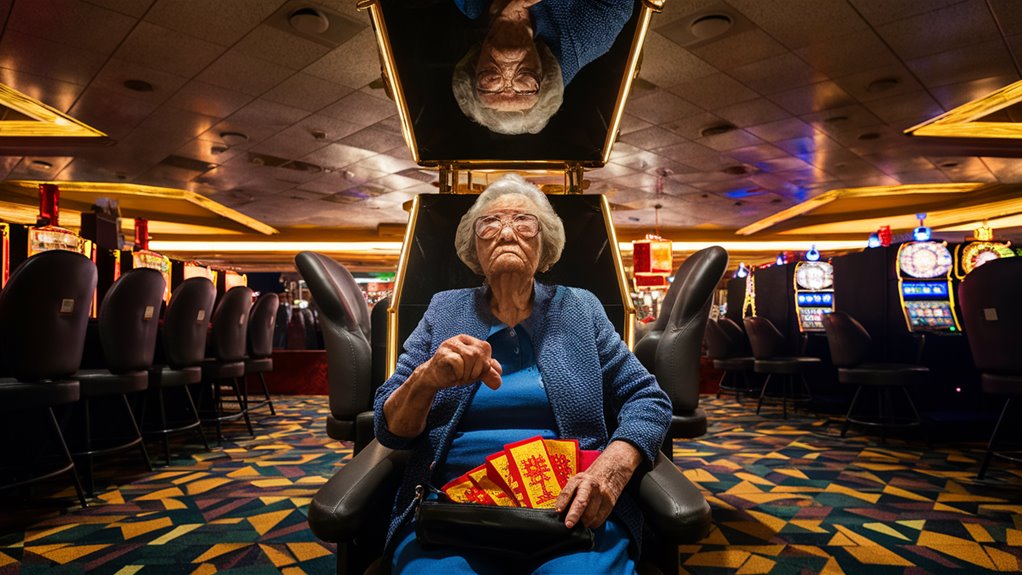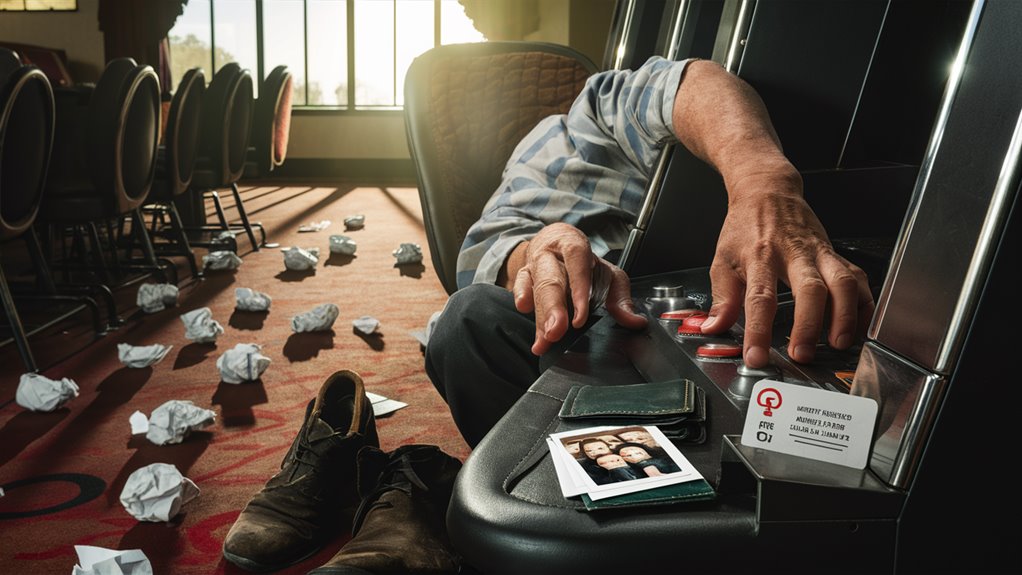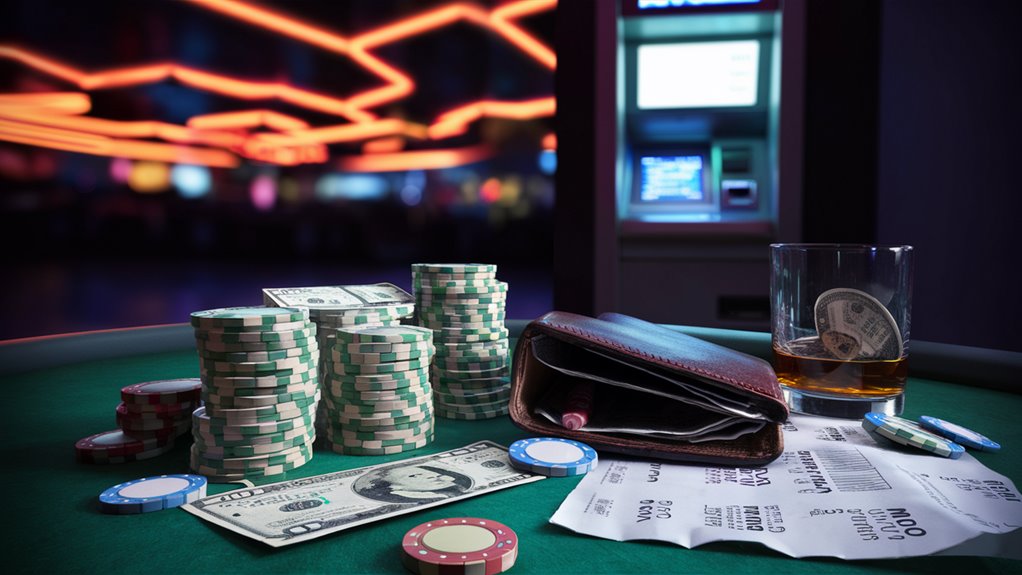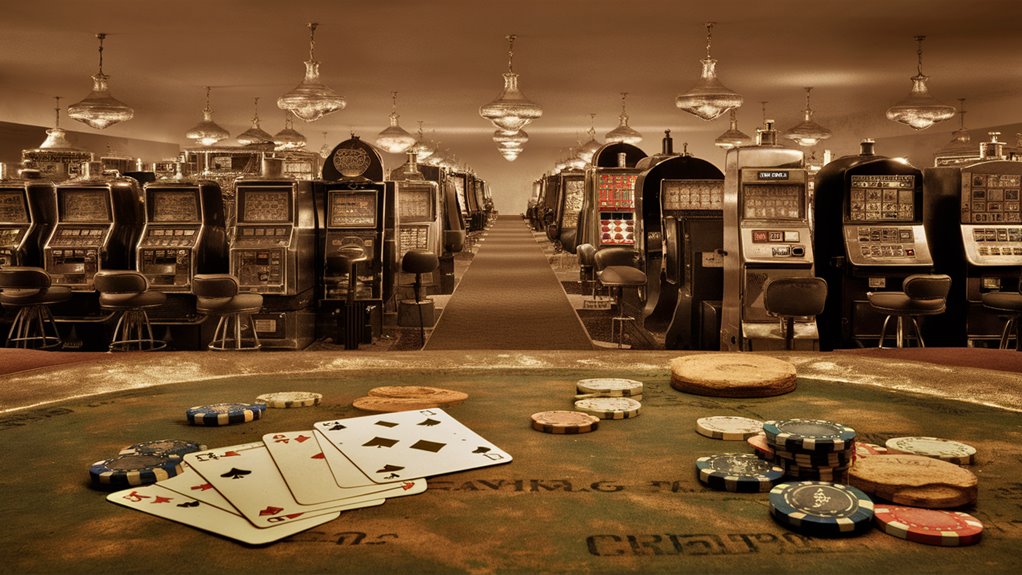The Mind Behind Gambling: How The Brain Reacts

The Brain and The Lure of Gambling
The deep link between gambling and the brain sparks a strong mind pull that may lead to habit-forming acts. Highs from dopamine during gambling mirror those from addictive stuff, filling the brain’s happy spots with warm feelings. At the same, more norepinephrine builds up, making the body feel alive and fun. 메이저사이트
The Close-Call Effect and Habit Building
A key mind trick in gambling is the close-call effect, which sets off dopamine even when you lose. This brain action makes you feel like you almost won, pushing you to play more despite losing. The brain gets extra tuned to these close calls, keeping the gambling cycle going.
Place and Culture Play a Part
Casino setups and cultural bits greatly add to the mind pull of gambling. How they lay it out, the lights, sounds, and prize timings are all set to keep you there longer. These outside nags link up with your brain’s reward spot to pull you deep into the game, and maybe, into a habit.
Your Brain At War: Risk Against Safe Play
The front brain, in charge of smart choices and holding back, fights constantly with other old brain areas that like risks. This tug-of-war helps explain why about 1-3% of grown-ups end up with gambling issues, as the brain’s reward wires beat the wise thinker in us.
Stopping Risks and Knowing The Ropes
It’s key to grasp these brain and mind plays to stop gambling messes before they start. Knowing how gambling plays with your brain and choices helps folks pick smarter about their gambling ways and spot signs of trouble early.
The Brain’s Happy Zone
The Brain’s Happy Zone and Betting Acts
Brain Links in Gambling
Three big brain signs lead during gambling: dopamine, serotonin, and norepinephrine.
In games, dopamine fills the brain’s happy spots, giving a rush like drugs or fun times. This brain wave rise keeps up habit acts, making you come back even if you lose.
Serotonin and Making Choices
Serotonin swims up and down through gambling, changing how you feel and decide.
Wins make more serotonin, making you feel on top of the world. But, losses drop serotonin, which might make you choose poorly and chase losses.
Excitement from Norepinephrine in Betting
Norepinephrine, works as a stress sign, brings the thrill often felt in bets. This makes you sharp and awake, lifting the game feel and making strong memories.
The mix of these three can mess up smart choosing, explaining the hard-to-stop gambling even with bad odds. Knowing these brain games matters a lot in seeing the dangers in gambling and stresses wise gambling.
Why We Risk It
The Mind and Risk Over Time
Our Risk Rules From Long Ago
Through old times, humans made brain rules to watch and take risks.
Our brain uses a deep risk check system in lots from gambling to big money moves. These moves come from needs our early family had to make fast picks in hunting or new places.
The Brain Signs in Risking
Brain signs lead in risk-taking, with dopamine popping up in waiting for rewards, even before true wins.
This waiting game shows why gambling holds on even after many losses. The norepinephrine high often beats wise picks.
The Brain Centers On Risk
The talks between the front brain and old brain parts make a complex choice web.
In high emotion times, smart picks from the front brain may lose to basic feelings. This brain order explains why folks might take real risks that don’t make sense by logic.
Using Risk Rules Today
Today’s risky acts link back to these deep old brain guides.
Seeing these body rules helps us get how we decide and assess risks. This bit matters lots from money behavior to fighting habit problems, showing how our old paths still change today’s moves.
Close-Call Effect
Inside the Close-Call Effect in Gambling

The Mind on Near-Wins
The close-call effect is a big mind play in gambling, where very near wins aim big think and heart plays.
These almost-wins light up brain roads like true wins, making a strong push to keep playing. The feel of being just off by one from a big win makes dopamine play, keeping the game on.
Brain Acts and Acts Seen
Brain moves in close calls look a lot like those in other needs.
Game makers use this mind trick by putting close calls in their games more than usual. This move works well in games of skill, where players may think close calls mean getting better and not just luck.
Main Bits in the Close-Call Effect:
- Dopamine like real wins
- Push patterns that keep game on
- Mind mix-ups on chance
- Better play feel through clever game make
- More game time even with losses
The close-call play makes a strong mind loop where players see these near things as signs of soon wins, even though each bet does its own thing.
This wrong take leads to long game times and stronger betting acts, putting the close-call play at the heart of gambling mind and habit talk.
Social and Culture Pulls
Social and Culture Bits in Betting Acts
Culture Looks and People Impact
Culture rules and being with others shape how gambling shows in different parts of the world. Some places see it as a big fun thing, while in others, it’s a big no.
Las Vegas bet life shows full-on normal gambling, very different from spots where it’s still a no-no.
Old and Now Gambling Ways
Culture ways switch up how folks bet all over.
West worlds mostly see betting as just fun, linking it tight with games and being social.
Friends and Web Pull
Buds and ties push lots of betting. If your close ones bet, you might too.
Web spots and social nets turn betting talks big, making web groups that see betting as normal through shared bits.
Money bits and class lines keep shaping who can bet and how across different kinds of people.
Fun to Mess: Seeing Habit Start
The Step from Fun Betting to Trouble: Seeing Habit Kick In
The Brain’s Move from Fun to Need
Just-for-fun betting can quick switch to trouble betting acts through deep brain changes.
This flip happens in clear steps, where the brain’s happy spot gets more and more sharp to betting stuff.
The shift shows deep brain shifts seen in need for substance stuff.
Signs and Brain Shifts
Some clear signs show the slide to trouble betting:
- Bets getting big
- Chasing losses
- Lying about betting
The brain’s dopamine spot changes a lot in this move.
What starts as fun turns to a must-do as brain roads build up from non-stop use.
Fast Tracks in Betting Mess
First Wins and Mind Plays
Early bet wins leave a deep mind mark that keeps the game on.
The brain makes answers to betting stuff like seeking drugs, dropping smart picks.
This brain change makes fighting betting needs very hard.
Place and Mind Health Bits
Many things can rush the switch to deep betting messes:
- Place hints
- Stress mountains
- Under mind health bits
These bits add to betting mess building, touching about 1-3% of grown-ups far and wide.
Seeing these flip phases matters a lot for jumping in early and stopping big troubles.
Break the Loop
Break the Loop: Winning Over Betting Messes
Knowing Pro Help Moves
Getting over betting needs means big plan steps and full help setup.
Tests show the best fix often has many layers like habit switches, money tips, and strong help nets.
Tested Fix Ways
Mind Habit Help (CBT) stands as a key in betting fix, really finding and switching betting mind ways and pull moments.
Teaming up with pro mess helpers lets folks redo deep set acts through tested help plans.
Put in Safe Steps
Must Stop Plans
- Putting in betting-stop computer stuff
- Giving money hold to folks you trust
- Staying away from real and web spots
- Setting spend checks and limits
Clinic data shows these strong stop moves, with full pro help, lift fix wins by 60% among those getting help. Harpsichord Mist Poker: Composing Melodic Overhauls in Fog-Shrouded Rival Scenes
Building Help Nets
Betters Anonymous and look-like peer help groups give needed answer-keeping and group lift.
Fix place tests show being with groups a lot drops going back to old ways, not like trying to fix alone.
In planned talks, folks make needed get-through plans and get from shared fix trips.
Keeping Fix Wins Long
Going to support meets with ongoing pro guiding builds a strong base for long win.
Fix wins jump big when folks keep up with both therapy and group help links.










